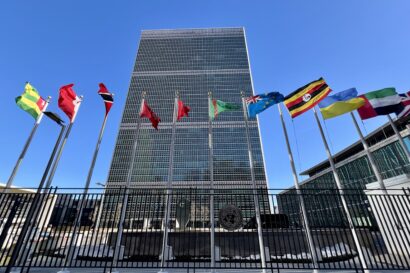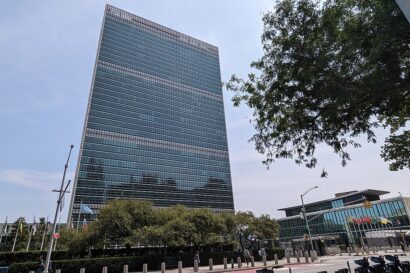There is a growing interest in the role that double tax agreements play in eroding societies’ tax bases. While long considered a technocratic area that generally aims to prevent double taxation, states have become increasingly aware that applying solid tax treaties is of extreme importance to prevent tax avoidance. Over the last few years countries such as Zambia, Argentina and Mongolia have annulled certain tax treaties with high-income countries to protect their tax bases. Just a few months ago, the Kenyan High Court declared the Kenya-Mauritius tax treaty unconstitutional.
Most attention surrounding international tax rules and developing countries has focused on the content of tax laws, and revenue authorities’ capacity to uncover tax avoidance and evasion. But to challenge tax planning structures effectively and provide investors with tax certainty, countries also need court systems that are capable of interpreting those laws fairly. A recent report by the Dutch NGO SOMO, in collaboration with the Indonesian NGO Prakarsa, sheds light on this regarding the Dutch-Indonesian tax treaty.
The Netherlands as a conduit for investment into Indonesia
The Netherlands is one of the main investors in Indonesia, along with with Singapore and Japan. The total amount of investments stemming from the Netherlands in 2017 was over 43 billion dollars. However, the majority of investment (over 75%) is related to letterbox companies. One of the main reasons for structuring foreign investment in Indonesia through the Netherlands is the favourable double tax agreement (DTA). The DTA between the Netherlands and Indonesia was first concluded at the beginning of the 1970s, and has been renegotiated several times since. The most recent DTA was signed in 2002, with the last amendment added in 2015. With this amendment, the withholding tax on dividend payments from substantial holdings investments is 5%, and the same rate applies to interest payments on long-term loans.
Tax treaty disputes
The Indonesian government has repeatedly tried to prevent treaty shopping through the Dutch-Indonesian double tax agreement. The Indonesian government published several circular letters with the intention of preventing treaty shopping. Additionally, the Indonesian tax authority brought a great number of companies to the Indonesian Tax and Supreme Court. Researchers from SOMO and Prakarsa investigated tax disputes relating to the Dutch-Indonesian DTA. The 27 cases analysed in the study occurred during the period 2002-2015, and had their final court ruling in the period 2010-2015[1]. All except for two cases were won by the company either in the Tax Court or after an appeal in the Supreme Court.
Why has Indonesia lost most cases?
One key factor was the questionable application of legal concepts that stem from the Netherlands-Indonesia tax treaty, such as beneficial ownership. The treaty states that a company can only take advantage of the reduced withholding taxes on dividends, royalties and interest if the company is the beneficial owner of the income, and not just a letterbox or conduit company. No such agreement was ever agreed upon, and the Indonesia tax authority has remained unable to effectuate the beneficial ownership criteria. In several cases the Indonesian Court argued that a Dutch letterbox company was in fact the beneficial owner (of for instance interest income), but based this on inadequate criteria such as a Certificate of Domicile or specific Dutch substance requirements.
A second important aspect that became apparent by analysing the court cases is the substance requirements, which are relevant for Dutch holding companies in international structures and Dutch financial services companies. The substance requirements are relatively weak, and facilitate the role of the Netherlands as conduit country for foreign investment. Furthermore, the fulfilment of the substance requirements has been wrongfully interpreted, by Indonesian judges, as a one-on-one fulfilment of the beneficial ownership requirement as stated in the tax treaty.
A third factor is the lack of technical capacity and resources of the Indonesian tax authority. In many cases the tax authority did not sufficiently demonstrate why it considered a particular company not to be the beneficial owner. Furthermore, when contested in court by the company, the tax authority was sometimes not capable of responding. The lack of capacity is also apparent for the judges in the Indonesian tax court. Between 2012-2015 around 50,000 cases were handled by the Indonesian tax court, despite having only 55 judges at its disposal. This translates into an average of almost 300 cases per judge per year.
What action can be taken?
There is no straightforward answer to this question. However, we make several recommendations in our report:
- Indonesia should implement an anti-abuse measure in its tax treaty with the Netherlands. This can, for example, be done through ratifying the Multilateral Instrument (MLI) of the OECD. The Netherlands has already ratified the MLI, whereas Indonesia has only signed so far.
- Increase withholding taxes. While it is unclear how the low rate of withholding taxes came about, both countries should agree to increase the rates to ‘average’ levels.
- Build the capacity technical capacity of the tax authority so that it can defend the cases it brings to court.
- Increase the number of judges able to adjudicate tax cases, to be more in line with the number of these cases brought to court.
- The Netherlands should increase the substance requirement for international holding and finance companies, thereby preventing phantom investments into countries like Indonesia.
The responsibility of fighting treaty abuse does not rest with one country, but must be addressed through cooperation between both Indonesia and the Netherlands.
Footnotes
[1] Data was collected from the directory website of the Supreme Court decisions of the Republic of Indonesia (MARI). The researchers downloaded the 7,460 tax dispute decisions available, and subsequently made selections relevant to the Dutch-Indonesian tax treaty.


